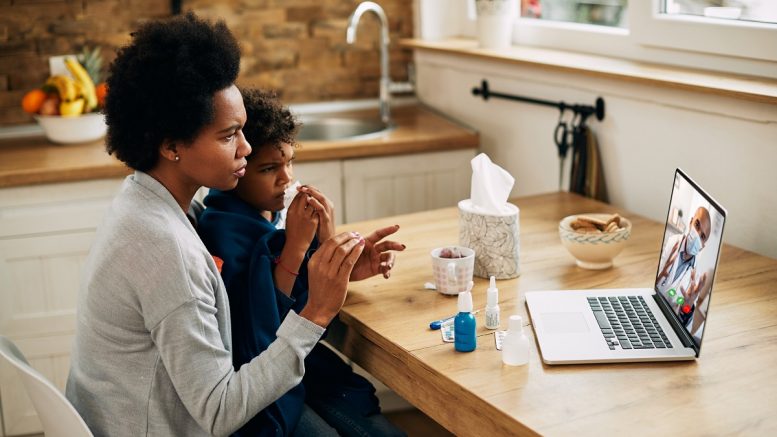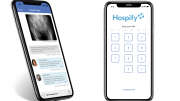In 2020, 94% of children in the US visited a doctor or healthcare professional; that equates to a staggering amount of visits. Overwhelmed with patients due to the pandemic, many hospitals and care centers were resource-constrained, with several vital areas of medicine being neglected, including pediatrics.
To alleviate some of the pressure, providers quickly shifted to telehealth visits. While telemedicine has been around for decades, its shining moment was during the pandemic, with use increasing 38 times from pre-pandemic levels. Telehealth is convenient, accessible, minimizes the spread of infectious diseases, and can prevent unnecessary ER visits.
By leveraging modern technologies like telehealth, health tech companies can revolutionize pediatric care. Expanding access to primary and specialty care—while delivering a superior patient experience—indicates that telemedicine is fast becoming a parent’s first choice for treatment.
Let’s take a look at four health tech startups that are shaking up the pediatric healthcare system.
Brightline
The approximate wait time to see a developmental-behavioral specialist in the US is six to nine months. Many families can reach a breaking point during this time and need access to help immediately. Brightline is a child and teen behavioral health platform designed by families for families.
This platform is reinventing how pediatric behavioral healthcare is delivered, with doctors working directly with family members to diagnose and create treatment plans. Brightline works through self-referrals and is designed to aid with various issues, including: anxiety, depression, ADHD, stress, and sleep issues.
The treatment is all done digitally, with the platform tracking children’s progress and providing detailed status reports for family members. The subscription allows access to in-house: speech therapy, medication management, behavioral therapy, and coaching for all family members.
Super Awesome Care
In the US, one in thirteen children suffers from food allergies, and their families face various barriers in finding the right care. Super Awesome Care is knocking them down. Its virtual care platform brings together on-demand, personalized clinical care, education, and community support for kids with food allergies and their families.
Parents have access to a collaborative clinical care team—to chat with pediatric allergists any time, call on nutritionists and behavioral therapists, and create a personalized care plan for their child.
The platform also provides educational materials to help parents make safe and informed decisions for their children. And with a community center designed for families, they can ask questions, share stories, and participate in informative workshops.
With tools like the digital food allergy card for the Apple Wallet, parents can easily share a child’s essential information: such as allergies, how to spot a reaction, and what to do if a reaction is severe. This makes sharing emergency information with other carers, like babysitters, coaches, and teachers, a simple and easy process.
EndeavorRx
An estimated six million US children have been diagnosed with ADHD, many of whom struggle to keep up with traditional teaching methods. EndeavorRx—the first FDA-approved video game for ADHD—improves attention function in children aged eight to twelve.
The immersive video game was created by neuroscientists and works in real-time to adapt to each child through a personalized algorithm. It works by activating specific neural systems in the brain through motor and sensory stimuli.
A common difficulty for children with ADHD is their ability to focus. By challenging them to multi-task and ignore distractions to complete levels, the game can aid them in classroom learning.
Blueberry Pediatrics
Most pediatric doctor visits are for easily diagnosable minor illnesses. A trip to the doctor’s office for a five-minute appointment leaves many parents feeling frustrated and can be taxing activity for a sick child. However, the Blueberry Pediatrics app makes it easy on parents and children by enabling them to see the pediatrician virtually from the comfort of their own home.
Blueberry sends all its users an at-home medical kit that family members can use to upload precise vitals onto the secure platform. The at-home medical kit includes: a wireless ear scope, pulse oximeter, oral thermometer, forehead thermometer, and a digital Rx saving card.
Once a parent inputs their child’s vitals and symptoms into the app, they are connected to a pediatrician who can diagnose and prescribe treatments virtually, even in the middle of the night. The platform can treat many childhood issues, including sinus infections, colds and fevers, and abdominal pain.
What all these platforms offer is immediate, personalized care from the comfort of a patient’s home. By designing platforms that expand access and convenience, health tech is transforming the patient experience. Offering an alternative route to care also allows the underfunded and overloaded healthcare system some much-needed breathing room.
If there is one thing we can thank the pandemic for, it’s the advancement of health tech. And with telehealth covered by more insurance providers, we expect to see many more innovations that continue to re-imagine the pediatric patient experience.
About the author
Rania Nasis, MD, MBA is the founder & CEO of Super Awesome Care, a health tech-enabled pediatric platform for kids with food allergies and their families. A physician entrepreneur and digital health expert, her mission is to bring the best food allergy care to all families, when and where they need it.





